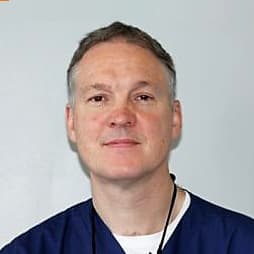The Northern Ireland Hospital Dental Services Forum (NIHDSF) is newly established, but already working hard to give hospital dentists space to discuss concerns and bring attention to the important issues they are facing.
Recruitment and retention, waiting lists, workforce planning, pensions, and pay disparity for junior dentists are all areas of concern. We still have no government, no Health Minister, and no First Minister. There is no one at the helm to drive us forward. The longer these issues go unanswered, the worse the situation becomes.
The issue with Dental Core Trainee pay
After undertaking Dental Foundation Training (DFT), if junior dentists want to specialise and become a Dental Core Trainee (DCT), they move onto the core trainee one pay scale in England, but in Northern Ireland they instead move to the foundation year two pay scale, similar to doctors.
There is a £6-7k disparity per year with colleagues staying in England.
Some time ago, we carried out a survey of junior dentists which found that many were taking a pay cut when moving across to a DCT pay scale in Northern Ireland. For dentists undertaking DFT in England, who then come back to Northern Ireland to be a DCT1, there is a £6-7k disparity per year with colleagues staying in England, with juniors taking a pay cut even when moving into a more senior post.
Junior dentists apply via national recruitment, so expect to be on the same pay as colleagues in other nations. The system is inherently unfair. The disparity is caused by a change in the pay scales 10 years ago, which included a revaluation of competencies across the UK. Northern Ireland was not included in that process, and this is the reason why our juniors have been left behind. I was meant to be working with a DCT2 in September for one day a week, but they resigned the post a few days ago. It is hard to be certain of the reasons, but realising you are paid significantly less could be a contributing factor.
Dire consequences of pay disparity
There is no doubt that the differences in pay between nations is having a detrimental impact on future generations of dentists. Northern Ireland Medical and Dental Training Agency (NIMDTA) figures indicate that in 2021-22 27% of DCT posts were vacant. In 2022-23 that figure has increased to 41%. Following a
Freedom of Information request, we discovered that as of 27 July, the vacant posts now stand at 50%.
The figures speak for themselves, how can you run a hospital service when you have a 50% shortage of junior dentists? The vacant posts leave hospital trusts needing to find locums to cover gaps, because DCTs are usually first on call for patients with facial injuries or dental trauma. The locums covering these roles are typically paid more, which causes further unhappiness. This is clearly an issue for patient safety. With 50% of posts vacant, you cannot provide the same service.
If locums are not available, more senior staff including Speciality and Associate Specialist dentists and Consultants are called upon to cover gaps, effectively meaning that dentists on much higher pay scales are doing the job of a junior dentist which makes no financial sense. With a total of 22 DCT posts in Northern Ireland, it would not cost a huge amount of money to fix this problem.
Progress on pay negotiations
On 19 June we met with the Permanent Secretary and gave an update on the impact of pay disparity on junior dentists. This was followed up by a joint BDA and BMA letter, to which we received a reply on 24 August confirming that the Department of Health Workforce and Policy Director has asked the Chief Dental Officer and Postgraduate Dental Dean to undertake an evaluation of the competencies of this group. Although things will not change overnight, we are making steps in the right direction.
The insufficient number of dentists in the training grade, and historic lack of workforce planning leaves us wondering who the dentists of the future will be, but forming the NIHDSF has been a huge help, enabling us to carry out more formal engagement with the Permanent Secretary. As Chair of NIHDSF and the dental representative on the BMA Consultants Committee, I have the unique opportunity to pass information between the two committees and join things up, which is something I hope to build on in the future.
We are spending time on other areas too, including looking at the newly launched My Waiting Times NI system, where the waiting times stated to patients do not provide an accurate reflection of reality, creating more administrative work and frustration for hospital dentists. We also have a Hospital Study Day coming up soon at the Hilton Hotel, Templepatrick on the 6 November. The themes are Head and Neck Cancer (AM) and Interactions between Dental Specialties (PM). This will not only be a great opportunity for Hospital Dentists to learn, but also to meet and catch up with colleagues in other units.

